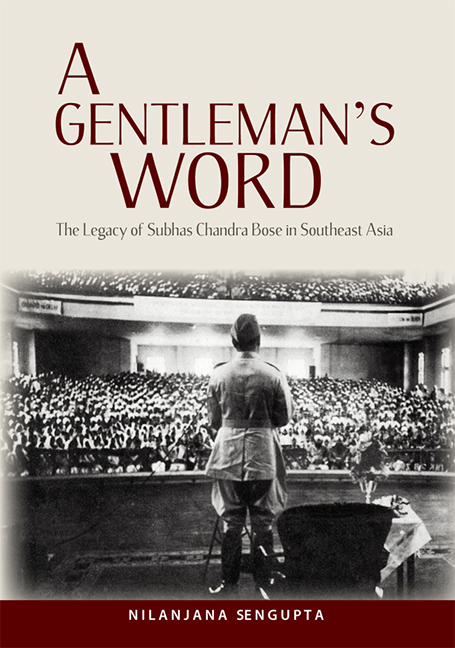Book contents
- Frontmatter
- Dedication
- Contents
- Foreword by S. R. Nathan
- Message by K. Kesavapany
- Message by Joyce C. Lebra
- Preface
- Acknowledgements
- 1 A Journey: A Dream
- 2 An Outsider in the Crescent and a Trial for Treason
- 3 End of a War, Beginning of Others
- 4 We are the Multitudes
- 5 “They Have Done Enough at Home”: Escape from the Shadows
- Bibliography
- Index
- About the Author
- Plate Section
4 - We are the Multitudes
Published online by Cambridge University Press: 21 October 2015
- Frontmatter
- Dedication
- Contents
- Foreword by S. R. Nathan
- Message by K. Kesavapany
- Message by Joyce C. Lebra
- Preface
- Acknowledgements
- 1 A Journey: A Dream
- 2 An Outsider in the Crescent and a Trial for Treason
- 3 End of a War, Beginning of Others
- 4 We are the Multitudes
- 5 “They Have Done Enough at Home”: Escape from the Shadows
- Bibliography
- Index
- About the Author
- Plate Section
Summary
“An odor has remained among the sugarcane:
A mixture of blood and body …
Between the coconut palms the graves are full
Of ruined bones …
The weeping cannot be seen, like a plant
Whose seeds fall endlessly on the earth.
Whose large blind leaves grow even without light.”
— The Dictators, Pablo NerudaLABOUR LINES
In one of the books by an INA veteran, there is a description of a League meeting at a rubber plantation. The Indian Independence League's (IIL) message was conveyed to the plantations on the Malaya-Thailand border. It was a plantation like any other of this region. As the young representative of the League spoke, the Tamil workers gathered around him in silence. Their silence was emphasized by the rows and rows of tall, symmetrical rubber trees that surrounded them, effectively cutting them off from the world. The canopy of leaves over their heads was so dense that sunlight seemed never to have penetrated down below. The dampness of the forest floor seeped into their feet. In the distance stood the labour lines — attap huts with zinc roofs.
As he spoke of the nationalist struggle, a heavy shower broke out. Streaks of lightning could be seen far above their heads. And yet the labourers never spoke or moved away from the meeting place. After a quarter of an hour, droplets of rain trickled down — the thick foliage above did not permit any of the soaking downpour to find its way down. But once the tup-tup of the rain drops falling on the leafage began, it never seemed to stop. The speaker felt it would drive him frantic. And yet the workers stood around him in silence in the gloomy half-light — seemingly drinking in the words he spoke.
BOSE AND TRADE UNIONS
Subhas Chandra Bose's interactions with trade unions and worker movements began early, under the tutelage of his political guru, Chittaranjan Das. The All India Trade Union Congress (AITUC) became active during the economic recession which tailed the First World War boom. C. R. Das served as the President of AITUC in 1922, and it was around this time that Bose too started taking an active interest in mass mobilization of labour.
- Type
- Chapter
- Information
- A Gentleman's WordThe Legacy of Subhas Chandra Bose in Southeast Asia, pp. 166 - 194Publisher: ISEAS–Yusof Ishak InstitutePrint publication year: 2012



